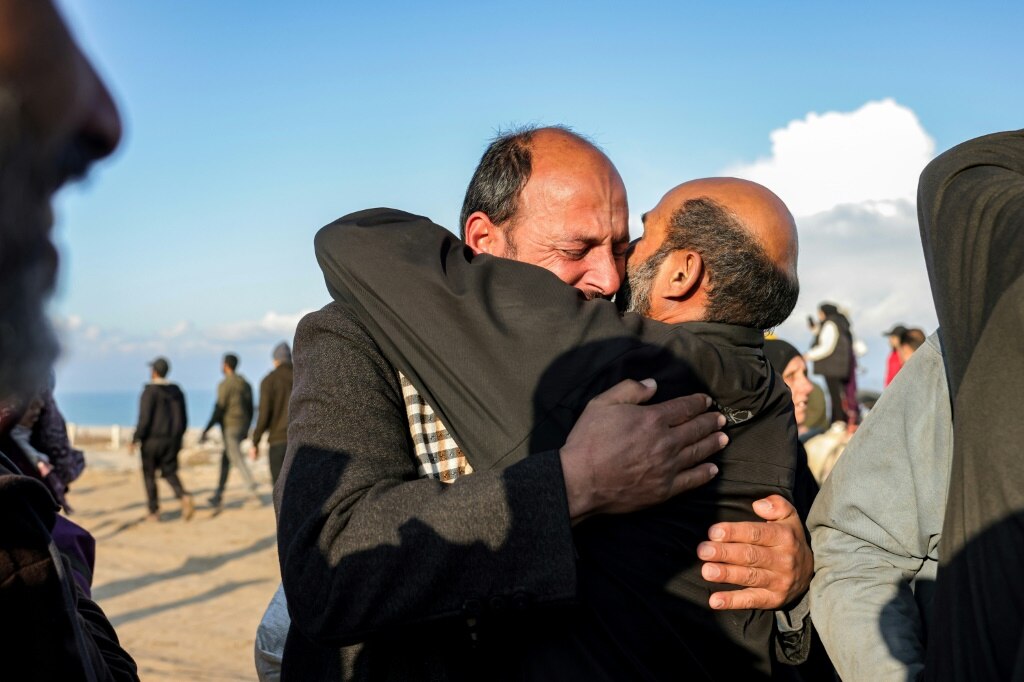Navy hero John Armfield reflects on Royal Commission Into Defence and Veteran Suicide
A navy hero and key witness in a military probe has revealed his biggest fear and what needs to happen moving forward.
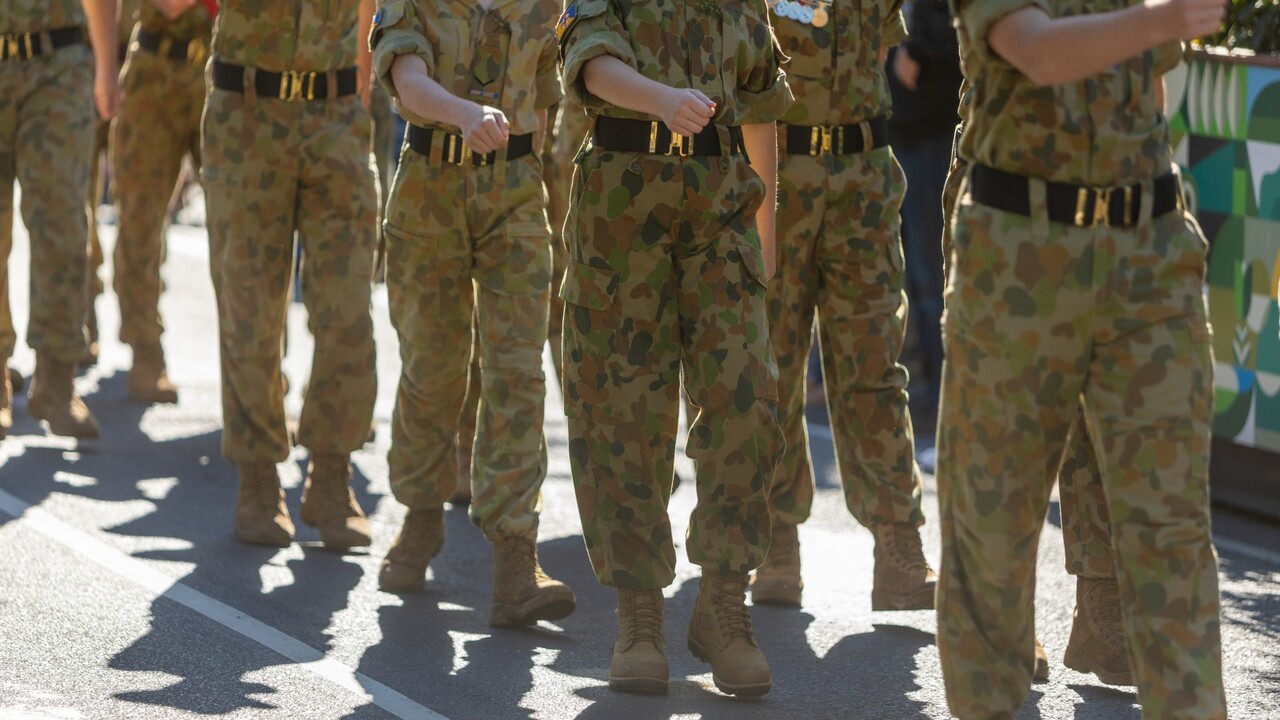
Breaking News
Don't miss out on the headlines from Breaking News. Followed categories will be added to My News.
The Royal Commission Into Defence and Veteran Suicide has delivered its final report into the stark healthcare menace that has degraded Australia’s military for decades, but one navy hero warns the commission’s work could be “brushed off” without lasting cultural change.
“It’s not the battlefield, it’s the barracks, which is scary,” navy diver John Armfield told NewsWire on Wednesday.
“I am worried. I am positive and optimistic but I am worried this royal commission will be like every other royal commission and the recommendations won’t be implemented.”
The commission, chaired by Nick Kaldas and supported by James Douglas KC and Peggy Brown AO, spent three years drilling into the complex mental health challenges that have taken the lives of 1600 servicemen and women between 1997 and 2020 – 20 times the number of service personnel killed on active duty.
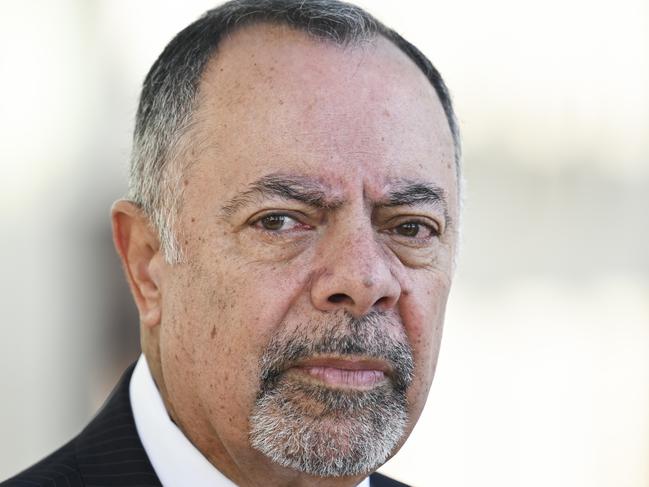
The mammoth seven-volume report traverses the fields of law and military justice, healthcare and defence but also areas of people and office management and the unique lives and sacrifices borne by service personnel.
On tabling the report, Mr Kaldas said there were “cultural and systemic issues” in the military that were failing serving and ex-serving ADF members and contributing to a “suicide crisis” in the Defence and veteran community.
“Real, meaningful and long-lasting reform will take time and require a concerted effort from leaders at all levels of government, military and bureaucracy,” he said.
“External oversight and accountability will also be key.”
What is the ‘crisis’?
Essentially, there is a gap in suicide rates between the Defence and veteran community and the civilian population.
According to the commission’s analysis, males serving in the permanent forces are 30 per cent more likely to die by suicide than employed Australian males, and ex-serving males who served in the permanent forces are 42 per cent more likely to die by suicide than Australian males.
Ex-serving females who served in the permanent forces are 110 per cent more likely to die by suicide than Australian females.
There have been 2007 confirmed suicide deaths among ADF members between January 1, 1985 and December 31, 2021, the report states.
Some 581,000 Australians, or about 2.8 per cent of the population aged 15 years and over, have served in the ADF at some point in their life, according to the 2021 census.
Suicide rates have remained relatively unchanged over the past 20 years.
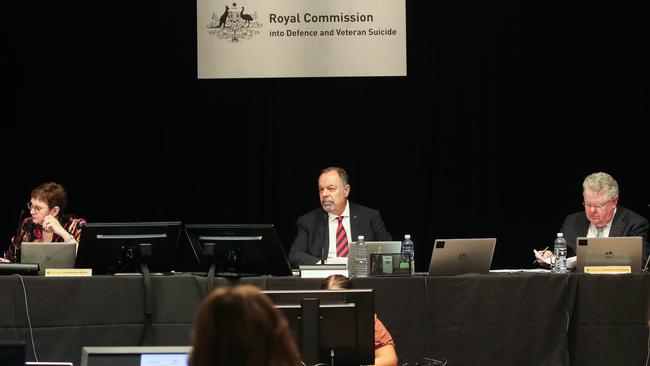
“The suicide rate for males serving in the permanent forces was 13.9 per 100,000 population per year in 1997-99 and 14.4 per 100,000 population per year in 2019-21,” the report states.
“The suicide rate for ex-serving males was 26 per 100,000 population per year in 2005-07 and 28.4 per 100,000 population per year in 2019-21.”
For the general Australian population in 2022, there were 3249 deaths by suicide or 12.3 deaths per 100,000 people.
The age-standardised suicide rate among males has been consistently higher and more variable than that for females, the report notes, with 2455 suicide deaths of males, or 18.8 deaths per 100,000 people, and 794 deaths of females or 5.9 deaths per 100,000 people.
The human element
Mr Armfield lost his brother Andrew, an air force serviceman, to suicide in 2011.
He then suffered through his own mental health struggles 10 years after the traumatic event as he grappled with an internal inquiry into his brother’s death.
When the report was made available to Mr Armfield, he told the commission he drove to a post office to pick it up without any support in place to help him process the findings, which he said revealed serious failures in his brother’s care.
“I was sitting in my car, broken,” he said during his testimony in March, with tears filling his eyes.

“I’d loyally served my nation and this is how they’d given me the report on my little brother’s death.
“I sat there and sobbed. I couldn’t take it home to my family.
“The contents of that report, the comments relating to my brother, I believe the inquiry officer at the time did a very good job.
“He outlined the issues.”
The contents of the report were not publicly aired during the testimony, but Mr Armfield said severe understaffing in mental health support was one factor that may have contributed to his brother’s death.
Multiple risks
The report drills into the multiple stressors that can negatively impact ADF members across the course of their service and post-service life, with separate chapters dedicated to each stressor.
The key risks include:
- Separation from family and family disruption, often connected to postings and deployments
- Administrative termination or involuntary discharge from ADF service for conduct, performance, actions or behaviour considered to be below professional standards
- Barriers and stigma in relation to seeking help
- Bullying, victimisation or abuse from peers and supervisors
- Burnout, linked to retention issues
- The military employment classification system
- Administrative violence, described as when a member in a command position abuses their power to harass and discriminate against a more junior-ranked member
- Moral injury, described as the psychological, social and spiritual effects of having acted in a way that transgresses one’s own deeply held moral values and beliefs, witnessing such actions or being on the receiving end of them
- Military institutional betrayal
- The ‘code of silence’
- A lack of transition support
- Lack of continuity of care in ADF healthcare services
- Inadequate record keeping during service life, making Department of Veterans’ Affairs claims difficult to prove after separation
- Inadequate access to healthcare
122 Recommendations
The report is vast, the recommendations numerous and the problems and stressors exposed are intricate and complex.
Here are some of the key recommendations the commission believes could help reduce suicide rates.
Recommendation 4 – Mitigate the adverse impacts of the posting cycle
Defence should take steps to mitigate the adverse impacts of the posting cycle on members and their families, the report states, by reducing the frequency of relocation, improving support for members and their families moving to a new location that target known stressors, such as housing, childcare and children’s education, and implementing greater mobility across the Australian Defence Force and flexible working options.
Recommendation 5 – Support all serving members to decompress, rest and reintegrate, especially after high-risk experiences
The commissioners state Defence should implement a clear and consistent framework for post-deployment support for members and their families that addresses the psychosocial aspects of reintegration.
“This should include an evidence-based approach to decompression and reintegration that allows for individual needs, informed by experience in comparable industries such as emergency services (and) training that addresses common issues that arise on entering and exiting operational activities, which may include grief, hypervigilance, sleep issues, excess alcohol use and aggression.”
Recommendation 7 – Increase employment opportunities within the Australian Defence Force for members who cannot be deployed
“Measures should include a systematic identification, within Defence workforce planning and other policies, of roles that may be suitable and should be considered for members who cannot deploy (and) a commitment to maximising opportunities for continuing employment of ADF members who are no longer able to be deployed due to illness or injury, including by minimising reliance on external service providers and contractors.”

Recommendation 9 – Improve organisational culture and leadership accountability to increase member wellbeing and safety
“The chief of the Defence Force, ADF service chiefs and the chief of personnel should agree on a suite of ADF culture targets, supported by data-driven metrics,” the commissioners state.
“Targets should be outcomes-based and time-bound.
“At a minimum, targets should be developed for the following cultural priorities: safety, health and wellbeing, with a focus on psychosocial safety (and) unacceptable behaviour and sexual misconduct, with a focus on removing barriers to reporting and improving complaints management (and) senior leadership accountability.”
Recommendation 63 – Reduce stigma and remove structural and cultural barriers to help seeking
The ADF should identify and remove cultural and structural barriers to help seeking and make a greater concerted effort to reduce stigma, the report states.
“The Australian government should remove reference to the word ‘malingering’ at Section 38 of the Defence Force Discipline Act 1982 (and) Defence should review all its policies and procedures and amend or remove those that are stigmatising (and) the ADF should develop a dedicated training program and a communications campaign to reduce stigma and promote help seeking.”
A new separate entity
The commission’s marquee recommendation is to establish a separate, independent entity with responsibility for preventing suicide deaths among Defence and veteran personnel.
“A new entity is needed because oversight and accountability for the wellbeing of serving and ex-serving ADF members is currently fragmented across multiple agencies,” the commissioners state.
“These agencies lack the capabilities to address the complexity of defence and veteran suicide and the interplay of risk factors.
“They lack expertise in the defence and veteran ecosystem, service life and post-service support needs and services provision.
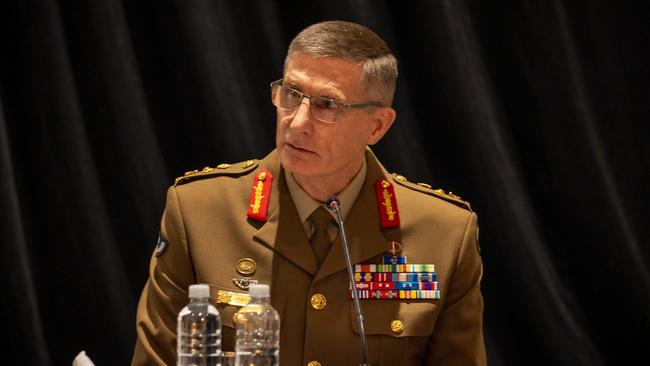
“Agencies have often resourced and prioritised short-term responses rather than long-term solutions.
“Having an entity specifically focused on the wellbeing of serving and ex-serving ADF members will help Defence remain an attractive career proposition when it is facing a recruitment shortfall and retention crisis.”
The commissioners propose a non-corporate Commonwealth entity established as a statutory agency through purpose-specific enabling legislation.
It would be independent, retain information-gathering powers and report to a relevant minister of parliament.
The new agency would monitor and investigate the following:
- Data and trends regarding suicide and suicidality among serving and ex-serving ADF members
- Systemic factors relating to the Australian government’s administration of policies, programs, systems and practices that contribute to suicide and suicidality among serving and ex-serving ADF members
- The progress and impact of the Australian government’s implementation of the commission’s recommendations and their outcomes once implemented
- The state of the Defence and veteran ecosystem, as it relates to the prevention of suicide and suicidality, including the cultures of Defence and DVA, the availability and effectiveness of prevention and early intervention programs, levels of collaboration across the defence and veteran ecosystem
A warning
Mr Armfield told NewsWire the recommendations from the commission, including the proposal of a new, stand-alone entity, could “in theory” produce positive reform.
But he argued the central issue at the heart of the challenge was what he called a “two-tiered” culture that split enlisted service personnel from the officer class.
And if there is going to be lasting change, Mr Armfield said, reform would need to begin from the leadership class.
“Australians are an optimistic people,” he said.
“We’re positive, can-do people.
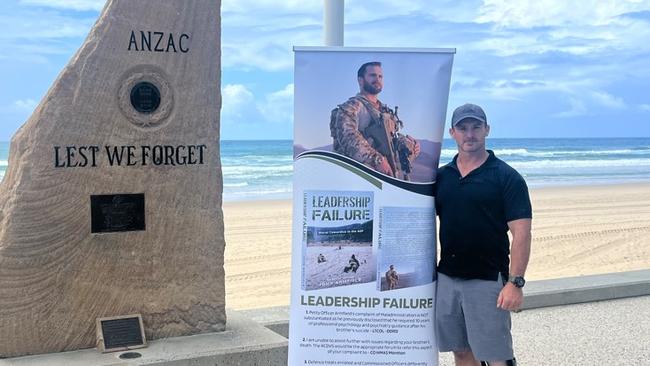
“If they allow the organisation to function as it should, this can happen.
“But we have a two-tiered culture. Why?
“In society, you have a hierarchy in work, but people don’t walk around slandering, abusing people, and if it does happen, it’s not to their face.
“I’m optimistic we can change, but we need to change some basic things.
“Stop making it a two-tiered culture. Just because you’ve got a university degree, it doesn’t make you leadership material.”
What happens now?
The federal government has tabled the report and will now review it and determine which recommendations it will implement.
“I thank the members of our Defence Force, our veterans and their loved ones who bravely shared their stories with the royal commission,” Defence Minister Richard Marles said.
“This has been a thorough inquiry, and we will take the time to carefully consider the recommendations of the final report.
“Our priority is ensuring that those who pursue a career in the ADF have a safe and inclusive workplace and are supported from the time they join, through transition and after service.”
Originally published as Navy hero John Armfield reflects on Royal Commission Into Defence and Veteran Suicide


